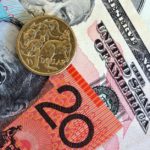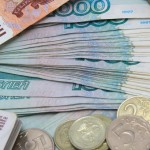US dollar lost ground against the Japanese yen on Friday, after a report on consumer inflation out of Japan showed that governments struggle with deflation led to some encouraging results, while concerns arose that a budget deadlock among US lawmakers may trigger a government shutdown.
USD/JPY fell to a session low at 98.52 at 6:01 GMT, after which consolidation followed at 98.64, still losing 0.36% for the day. Support was likely to be received at September 25th low, 97.77, while resistance was to be encountered at September 20th, 99.67.
Japanese Statistics Bureau said that the core consumer price index, which excludes volatile components such as food costs, rose 0.8% in August on annual basis, after it climbed 0.7% in July. Preliminary estimates pointed an increase by 0.7% in August.
The core consumer price index for Ku-area of Tokyo rose 0.2% in September annually, after the 0.4% gain in August, while expectations pointed a 0.3% increase. The general consumer price index for Ku-area of Tokyo rose 0.5% in September on annual basis, meeting projections.
These numbers were encouraging, especially if we take into consideration the fact that Japan has been struggling with deflation for two decades. A major goal of the Japanese government is to lift consumer inflation to 2% within a period of 2 years. There have been concerns among Japanese policymakers whether a 2% inflationary target in such a stretch could be achieved, but however, the above mentioned CPI data may appear to be another sign that Prime Minister Abes measures to revitalize economy were slowly paying off.
In the mean time, the Senate of the United States plans to vote today on a spending bill, 3 days before federal spending authority runs out and a few weeks until the country reaches its borrowing limit. “In the very short term, if we do get a bit more uncertainty coming out of the fiscal situation in the U.S., we do think the yen will strengthen across the board,” said Peter Dragicevich, a currency strategist in Sydney at Commonwealth Bank of Australia (CBA), cited by Bloomberg. US President Barack Obama and congressional Republicans are deadlocked over the federal budget in a dispute which could lead to a government shutdown within days. Republicans are insisting that continued spending after the current budget’s September 30th end date be contingent on reducing the funding of president’s health-care law, while Barack Obama has rejected such a proposal. This confrontation could influence the next set of negotiations over whether to increase the 16.7 trillion USD borrowing limit, which, according to the US Treasury Department, will be reached by October 17th. The Japanese currency tend to gain strength in times of economic and/or financial turmoil, as Japan does not rely on foreign capital in order to fund its deficit.
Elsewhere, the Japanese yen was gaining against the euro, with EUR/JPY cross decreasing 0.28% on a daily basis to trade at 133.16 at 6:54 GMT. The yen has depreciated 0.6% against the US dollar since August 31st, trimming its quarterly gain to 0.4%. The Japanese currency has gained 1% in the past week, or the best performing currency among the 10 developed-nation currencies, tracked by Bloomberg Correlation Weighted Indexes. The US dollar has risen 0.3%, while the euro has dipped 0.1% during the same period.





